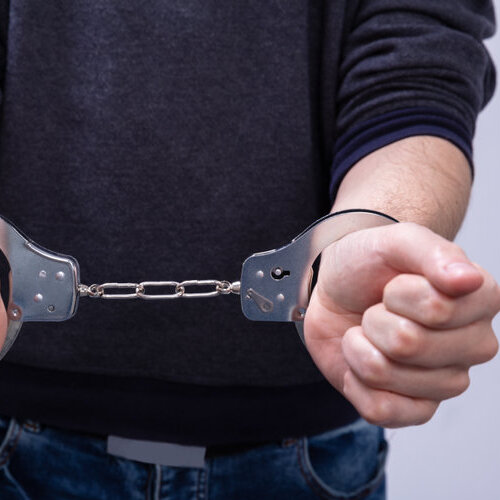
Understanding Your Charges
Sometimes, people gather for a sports game or some type of celebration, and things get a little out of hand. Or maybe there is a domestic dispute that gets out of hand. In either case, somebody is arrested, leaving family and friends getting funds together for disorderly conduct bail money.
Getting a Lawyer for Disorderly Conduct Charges
When a person is arrested and needs disorderly conduct bail, they may question, “Should I get a lawyer for disorderly conduct?” And the answer is yes. Having legal representation is always recommended in a criminal defense situation.
In the State of Georgia, disorderly conduct definition is broadly defined, as are many other crimes. In Georgia, the law defines disorderly conduct as a tumultuous or violent act committed towards another person(s), causing them to fear the person exhibiting disorderly conduct. This can include any obscene language being used in the presence of a child 14 years old or younger, or any language that could incite violence.
This makes a wrongful conviction a strong possibility, which supports the fact that having legal protection and representation is a must. With a criminal defense lawyer on your side, the disorderly conduct bail set by the judge could be negotiated down, requiring a lower amount of disorderly conduct bail.
What kind of crime is disorderly conduct?
The purpose of disorderly conduct laws is to protect the general public, not for the local or state to collect disorderly conduct bail monies. Disorderly conduct and disturbing the peace are both considered to be acts that can cause or create alarm or anger in other persons. An arrest requiring disorderly conduct bail may include any behaviors that can lead to potential illegal acts being conducted.
The following are examples of commonly disorderly conduct charges:
- Abusive and/or obscene language
- Excessive loud noises in public places
- Physical attack on person or persons
- Traffic obstruction
How bad is a disorderly conduct charge?
A disorderly conduct arrest is often considered to be a catchall arrest that law enforcement uses when they are being confronted by a person(s) they feel is a threat to the general public. Many that have been arrested and had to pay disorderly conduct bail believe this charge is used to “teach a lesson” or be made an example to others. Many defense lawyers claim that law enforcement uses it when they are irritated, and this is an arrest grounds that shouldn’t exist.
In Georgia, a disorderly conduct charge is classified as a misdemeanor offense. A judge sentence of 1 year maximum jail time with a $1,000 fine. This is at the judge’s discretion. They may also choose to sentence a defendant to probation instead of time behind bars along with the fine and community service. In some cases, depending on the surrounding situation of the arrest, they may order the defendant to attend an alcohol awareness class. This all takes place after the judge has set a bond and the defendant is still required to post a disorderly conduct bail to be released originally.
Is disorderly conduct considered a violent crime?
Disorderly conduct is classified as a misdemeanor or an infraction of the law. However, law enforcement officers will utilize this law to maintain a peaceful protest and keep things from getting out of hand and turning violent.
Will disorderly conduct affect employment?
It could, depending on the employer and the position you hold within the company. While disorderly conduct is classified as a misdemeanor and a relatively minor crime, it will still be a permanent mark on your criminal record. With that, it could show on a background check for any potential employer or landlord.
What happens when you go to court for disorderly conduct?
After being arrested on disorderly conduct charges and posting disorderly conduct bail, you will be given a court date to appear before the judge. At that time, the judge will read the charges against you and ask you to enter a plea.
At this time, if you have hired a defense attorney, they will enter the plea for you, and if they plead not guilty, they will be required to present the facts in your favor. Because a disorderly conduct charge is often subjective, your lawyer has a strong possibility of proving your innocence. With all the information from you, they will be able to create a defense that could get the charges dropped, or perhaps probation in lieu of time served.

At The End of Your Court Date – Can disorderly conduct charges be dropped?
Because the disorderly conduct law is a very subjective crime, it can often be beaten by an experienced criminal defense lawyer. With a well-informed defense lawyer, meaning the defendant must tell them everything about the situation where the disorderly conduct arrest happened, they are often shown the charges are based on vague grounds. Thus the charges are dropped.
